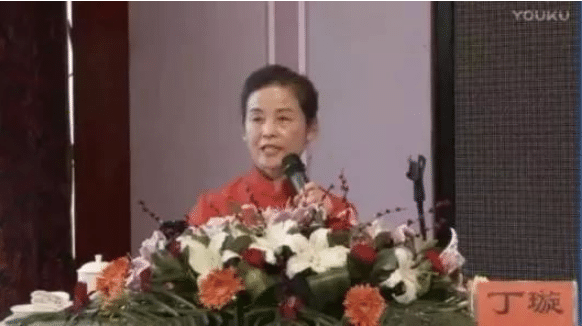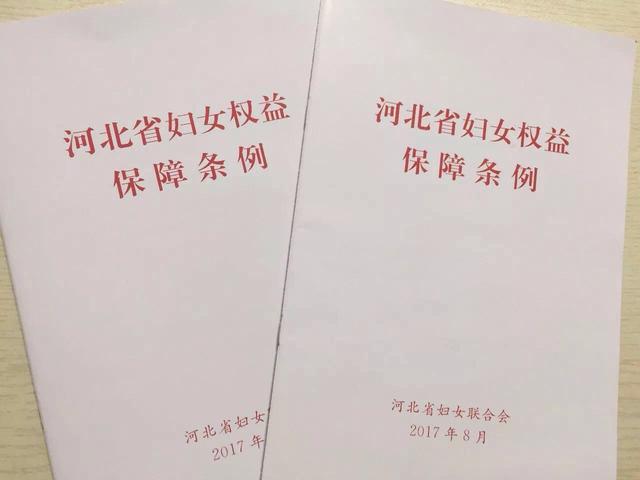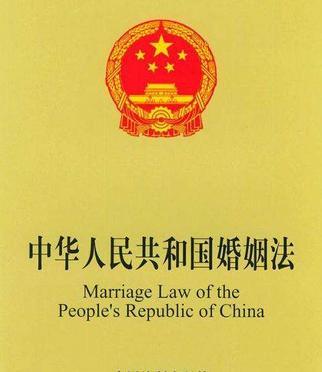Happy Women’s Day! To mark this important day in honour of the movement for women’s rights, CDB has selected the top 10 news on women’s rights in China between March 8, 2017 and March 8, 2018.
1. Lectures on “female virtues” spark national outrage (May/December, 2017)

Ding Xuan, an expert on “feminine virtues”, at one of her lectures.
In May, a lecture held by a university in Jiangxi province aiming to promote traditional Chinese culture was deluged with condemnation after some parts of it, with titles like “a woman’s best dowry is her chastity” and “wearing revealing clothing is very vulgar”, were exposed online.
Entitled “how to be a fair lady in the new era”, the lecture was delivered by Ding Xuan, reportedly a retired worker whose highest education was junior high school, before she mysteriously became a member of the China Women’s Development Foundation, executive vice-president of the Hebei Province Traditional Culture Research Association and an expert on “feminine virtues”.
Before her notorious speech in Jiangxi, she had already given many similar lectures at educational institutes, enterprises, and governmental organizations about the kind of feminine virtues she promotes. In her previous talks, she had made shocking comments like “people who are beaten regularly tend to be physically healthy”, “women cannot interrupt when men discuss big things” and “a woman who is raped is an insult to her ancestors”.
Her words caused visceral fury nationwide. Netizens accused Ding and the host university of being “feudal” and misogynistic. Some commented that “the Qing Dynasty is over”. Mainstream media outlets such as China Women’s News, the official paper of the All-China Women’s Federation, also published articles that mercilessly denounced this kind of ideology.
Public anger obviously did not prevent these patriarchal platitudes from disappearing. Seven months later in Fushun, northern Liaoning, a so-called “feminine virtues workshop” took place, including ridiculous remarks such as “women who order take-away food go against feminine virtues”, “a woman should speak less, work more, and close her mouth” and “women should stay at the bottom instead of reaching for a higher social status”, according to a video posted on the new media outlet Pear Video.
Though the workshop was soon suspended by the local educational bureau due to a lack of certificates, the resurgence of “feminine virtues” under the cover of “traditional culture”, in an era when feminism is becoming more and more popular among Chinese women, is worthy of caution.
2. Woman in labor jumps to her death after a C-section is rejected (August, 2017)

A surveillance video from the hospital shows Ms. Ma kneeling in front of her family in a hospital hallway a few hours before her tragic death.
On August 31st, a pregnant woman with excruciating labour pains in Shaanxi province killed herself by jumping out of the fifth-floor window of a hospital after her request for a cesarean delivery was rejected.
The 27-year-old woman, identified as Ma Rongrong, was 41 weeks pregnant. She and her family originally chose a natural birth, until her labor pains intensified to a degree that she couldn’t tolerate, and she wanted to have it changed to a C-section.
Her request was denied. A surveillance video from the hospital shows Ms. Ma kneeling in front of her family in a hospital hallway a few hours before her death. The hospital claimed that Ms. Ma was begging for her family to agree to the cesarean delivery, as according to Chinese law the family members’ approval is a must before any major surgery is carried out. The family on the other hand asserted that it was the hospital that insisted on a natural birth.
The case provoked national debate, with two questions rising to the forefront. One is why women don’t have a say on their own options for childbirth, and the other one is why pain management during childbirth, for instance epidural anaesthesia, is still not widely available in China.
3. Hebei province implements pioneering women’s rights protection ordinance (September, 2017)

A copy of the Hebei Province Women’s Rights Protection Ordinance.
The Hebei Province Women’s Rights Protection Ordinance went into effect on the 1st of September 2017. The ordinance stipulates the establishment of an interview mechanism (约谈制度) for women’s rights to equal employment, incorporating interviews on women’s rights into labor inspections to ensure that women can have equal rights in the process of recruitment and employment. The ordinance also sets stipulations against sexual harassment in public.
After the new regulation had gone into effect, the Women’s Federation of Cangzhou received a letter in November, denouncing that a particular company had a policy of only recruiting men, thus engaging in employment discrimination against women and violating the newly released ordinance. The Women’s Federation intervened, interviewing the company and ordering it to make changes to their recruitment practices.
This example is a good proof of the successful implementation of the Hebei Province Women’s Rights Protection Ordinance, which is a pioneer in the protection of women’s rights in China. By institutionalising and legislating the interview mechanism, the ordinance strengthens social supervision on equal employment and provides women with a guarantee of equal rights under the law.
4. University professor who says academia not for women stirs controversy (October, 2017)

A screenshot of Feng Gang’s Weibo post, saying “history has proven that academia is not the domain of women”.
In October a sociology professor at renowned Zhejiang University, named Feng Gang, attracted a storm of criticism when an old Weibo post of his from 2013 resurfaced. The post described his experience interviewing candidates for a master’s degree program.
“Unexpectedly, the gender ratio is five women to one man, with the top three candidates being female,” Feng wrote. “According to my previous experiences, less than ten percent of female students choose academia as their career path, and few are dedicated to study during their program. They just want the degree for employment.”
Though denying any intention to discriminate against women, Feng was widely condemned by netizens. The professor’s Weibo was showered with outrageous comments, but Feng doubled down on his previous remark and said that “history has proven that academia is not the domain of women.” Dismayed by his remarks, a group of mostly female doctoral candidates demanded an apology through an online petition. Feng insisted that he had done nothing wrong.
Feng had his own advocates. Some of his students tried to defend their professor but only ended up providing more sexist anecdotes, and some netizens sided with Feng because they claimed he was merely stating the facts. It is thus disconcerting to see the how little has been achieved in raising the public’s gender awareness. And it is troublesome to think how much harder the academic careers of female students in Chinese universities will be with professors like Feng.
5. Hope coexists with worry, says the monitoring report on the implementation of China’s first law against domestic violence (November 2017)

The coming into effect of China’s first anti-domestic violence law, on March 1st 2016, marks a milestone in the cause of the protection of women’s rights in China. In order to promote the legislative purposes of the law, the women’s rights NGO Beijing Equality has continuously monitored the performance of the implementation of the anti-domestic violence law and published monitoring reports in March and November 2017.
According to the November report, there were a total of 533 deaths caused by domestic violence in China during the 20 months from March 1st 2016 to October 31st 2017, taking data gathered from all the media reports of any kind. At least 635 adults and children were killed, including neighbours and passers-by who became embroiled. An average of over one person a day died from this sort of abuse, most of them women.
The great achievements gained by the implementation of the anti-domestic violence law are impossible to deny. For example, the launch of hundreds of documents from state organs and 21 provinces as supporting measures to facilitate the enforcement of law; the vast media coverage of domestic abuse-related information; the inclusion of cohabiting couples under the scope of protection; the offers of special protection or restraining orders by the courts to the victims; the written reprimands of the perpetrators by the police.
However, it would be unrealistic to say that the implementation of the law has been the best it could be. As a law with only general principles, the absence of detailed regulations has created great difficulties for law enforcement. Law enforcement officers’ lack of awareness and knowledge of domestic violence has led to a shortage in the issuance of written reprimands and restraining orders. Only mediation was offered in many family abuse cases and this has left a lot of victims, especially women, living in violence or exile. Moreover, despite the fact that the law offers special protection to minors, the elderly, the disabled, pregnant and lactating women, and patients with serious illnesses, other vulnerable groups are left outside the umbrella.
China’s battle against domestic violence is far from over.
6. #Metoo in China: alumni petition universities against campus harassment (January 2018)

On the first day of 2018, empowered by the international #Metoo campaign, Luo Xixi, a former Ph.D student from Beihang University, came forward and exposed sexual misconduct by her former professor Chen Xiaowu twelve years earlier. The accusations soon acted like a stone tossed in the water, raising huge ripples in China’s social media. By the end of the following day, #ProfessoratBeihangUniversityAccusedofSexualHarassment had become a trending topic on Weibo with more than 4 millions reads, and Luo’s post had received more than 3.5 million views.
Encouraged by Luo, more than 8,000 alumni and students from more than seventy universities around China have sent out open letters with signatures to their alma maters, to call for the establishment of an anti-harassment mechanism on campus.
The hashtag #metooinchina garnered over 4.46 million views on Weibo by January 17, and the movement gained its first triumph when Beihang University revoked Chen’s academic titles, and the second when the Ministry of Education vowed to study a long-term mechanism against campus harassment.
Encouraged by these sincere youths, more groups decided to join the campaign to fight against sexual harassment. On January 22, 58 professors across the country issued a plea for an anti-harassment mechanism on campus. In February, female workers at Foxconn Shenzhen started to petition the enterprise to fight against sexual harassment.
What happened at the beginning of this year will certainly embed itself in the history of China’s feminist movement, showcasing the power of women, the power of speaking out, the power of action and most importantly, the power of the young generation to usher in a new era with more equality.
7. The Supreme Court revises its judicial interpretation of the Marriage Law to save women from their ex-husbands’ debt (January 2018)

Cover of the Marriage Law of China.
On January 17, China’s Supreme Court revised the article 24 of Judicial Interpretation II of the Marriage Law, which clarifies that only the debts that were signed both by the husband and wife or were signed by one party yet later ratified by the other shall be regarded as joint debts of the couple.
The previous judicial interpretation of article 24 stipulated that debts incurred by one spouse should be paid off jointly, unless the other spouse can prove that the debtor and the creditor agreed that the loan was personal. This was originally designed to prevent couples from intentionally evading loan repayments.
However recent years have seen an increasing number of people forced to take on joint responsibility for a large debt incurred by their spouses that they were unaware of. According to People’s Daily Online, a poll in October 2016 revealed that among 285 respondents who were forced to pay for their spouse’s debt, 88.7% were women. The most famous case is probably that of Jin Yan, who was landed with a debt of 200 million yuan after the sudden death of her husband Li Ming, founder of the Beijing Galloping Horse Media Co. Ltd., because Li had signed a Bet-on Agreement of which Jin wasn’t aware.
The amendment can thus be viewed as a protection of women’s rights in China.
8. Shandong TV apologises for sexist skit in its Chinese new year Gala (February 2018)

The controversial skit in the Chinese new year gala of Shandong TV.
The Chinese new year gala of Shandong TV came under fire for the sexist lines contained in a show. Entitled “The Oath of the Ocean”, the sketch talks about a member of a marine salvage team, who chooses to stay at his job rather than be with his pregnant wife who is about to give birth at home, due to the detection of a typhoon at sea.
One line meant to express the character’s love for his wife goes: “I spent 40,000 yuan for the marriage. She married me at 24. If she passes away at 84, it means she will have lived in my house for 60 years, which is 21,900 days. I spent 40,000 to buy her for 21,900 days, an average of only 1.826 yuan a day, less than two yuan a day. She has to clean the house, take care of the elderly, work and give me children. I have no reason not to love her since hiring a nanny costs more than 3,000 yuan a month and I spend less than two yuan a day”.
The point of such skits is generally to make audiences laugh, but most of the viewers were not amused. Facing increasing criticism for its objectification of women Shandong TV issued an apology later on, saying that they had no intention to discriminate against women, and deleted the controversial part.
9. Father of the groom forcibly kissing the bride ignites debate on inappropriate wedding customs (February 2018)

Screenshot of the videoclip showing a drunk groom’s father forcefully smooching his daughter-in-law.
In February, a shocking videoclip of a drunk groom’s father forcefully smooching his daughter-in-law during his son’s wedding banquet went viral.
The family later issued a statement explaining that the father was merely pretending to kiss the bride to cater to the wedding customs of Yancheng, Jiangsu province, where the farce took place, and to create a joyous atmosphere for the big day. The father also told media that according to tradition, the more lively the wedding is, the more of a fortune the couple will make.
Most people did not show themselves appreciative of this kind of custom. Many netizens argued that this so-called custom is just another disgusting bit of cultural garbage that needs to be abandoned. Facing public outrage, the city of Yancheng issued a written proposal entitled “civilised weddings, boycott vulgarity”, to act against uncivilised and indecent wedding banquets.
It was not the first time that inappropriate wedding customs took the spotlight. Recent years have seen many scandals, with bridesmaids being harassed or even raped on the wedding day. The most famous case is that of Liu Yan, a famous TV hostess who was harassed by the best men during the wedding of her friend, the actor Bao Bei’er, at which she was the bridesmaid in 2016.
In a society where sex is still taboo in the public space, weddings might be one of the very few occasions where people can bring this topic out publicly. It is however disappointing to witness these sex-related pranks that indicate a deep-rooted disrespect for women.
10. The proportion of women in the NPC and the CPPCC rises (March 2018)

The Great Hall of People where the “two sessions” take place.
China’s “two sessions”, the National People’s Congress (NPC) and the Chinese People’s Political Consultative Conference (CPPCC), whose annual meetings take place in March, both have an increasing number of women members.
Out of the 2,980 members of the thirteenth NPC, 742 women members occupy 24.9% of the total. Compared with the figure for the twelfth NPC, there are now 43 more members. The percentage of women members has increased by 1.5% from 23.4%, reaching a new peak.
Out of the 2,158 members of the CPPCC there are 440 women committee members, taking up 20.4% of the total. This also marks an improvement, with 41 more women members than the 12th CPPCC. The rising number of women members in these two bodies has been praised as a sign of increasing female participation in politics.



